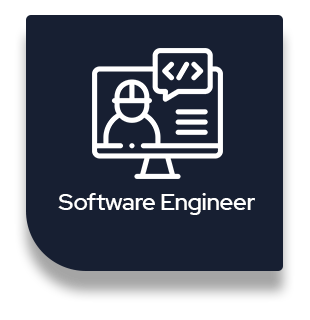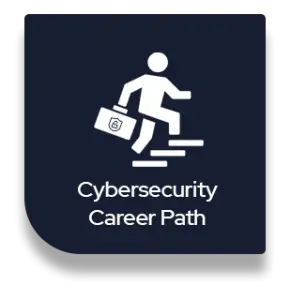Software Engineers design and create computer systems and applications to solve real-world problems. Software Engineers, sometimes called software developers, create software for computers and applications. If you’re an analytical thinker who enjoys solving problems and making digital products more accessible, you may find a career as a Software Engineer rewarding.
Software Engineer tasks and responsibilities
Successful engineers know how to use suitable programming languages, platforms, and architectures to develop everything from computer games to network control systems. In addition to building their systems, Software Engineers also test, improve, and maintain software created by other engineers.
“I get excited about anything that involves solving problems, whether it be figuring out how to optimize a certain part of an existing application or entirely coming up with new applications to solve certain needs,” says Murtadha Al-Tameemi, a Software Engineer at Meta. “Problems, in general, stimulate my brain and give me great satisfaction.”
In this role, your day-to-day tasks might include:
- Designing and maintaining software systems
- Evaluating and testing new software programs
- Optimizing software for speed and scalability
- Writing and testing code
- Consulting with clients, engineers, security specialists, and other stakeholders
- Presenting new features to stakeholders and internal customers
- Systems developer vs. application developer
- Software Engineers fall into one of two categories, systems developers or application developers.
As a systems developer (sometimes called a backend engineer), you’ll build computer systems and networks that front-end (user-facing) applications will need. You can do this by:
- Ensuring that different types of software programs communicate with each other on one platform
- Creating and enforcing IT standards within an infrastructure
- Maintaining documentation of IT systems
- Updating to new technologies as needed
- Collaborating with development teams, senior systems architects, and data science professionals
Working as an application developer is more client-focused. You may work on either the front or back end of the system, designing software that the end user will interact with. Tasks might include:
- Developing applications for iOS, Android, Windows, or other operating systems
- Conducting an analysis of requirements and tweaking software as needed
- Releasing software updates
- Working with graphic designers, customer service staff, project managers, and other customer-facing departments
Why should I pursue a career as a Software Engineer
A Software Engineer career can be fun and challenging if you enjoy solving problems and have strong analytical skills. And as technology continues to evolve, the need for software developers grows much faster than the national average.
Choosing a career as a Software Engineer gives you opportunities to work in many different industries and fields, as nearly all businesses use the software. So whether you enjoy finances, entertainment, sports, real estate, or some other industry, there’s a good chance there are jobs for Software Engineers.
It’s also a career that allows flexibility in where you work. For example, you may be able to work from home for companies in other states or even other countries. The important thing is that you can meet deadlines and deliver a project on time.
Software Engineer salary
Working as a Software Engineer can be challenging and engaging and tends to pay well. According to the US Bureau of Labor Statistics, the annual median salary for a Software Engineer in 2021 was $109,020. Jobs in software publishing tend to draw the biggest salaries.
Career Paths in Software Engineering
Once you become a Software Engineer, you can choose which path you want to take (applications or systems) and how far you want to progress with it. For example, you can decide to advance toward a role as a Senior Software Engineer, or you can continue gaining certifications and experience to go to roles like project manager or systems manager. As a Software Engineer, you have both flexibility and mobility to create the career experience that is most appealing to you.
Why should I pursue a career as a Software Engineer
A Software Engineer career can be fun and challenging if you enjoy solving problems and have strong analytical skills. And as technology continues to evolve, the need for software developers grows much faster than the national average.
Choosing a career as a Software Engineer gives you opportunities to work in many different industries and fields, as nearly all businesses use the software. So whether you enjoy finances, entertainment, sports, real estate, or some other industry, there’s a good chance there are jobs for Software Engineers.
It’s also a career that allows flexibility in where you work. For example, you may be able to work from home for companies in other states or even other countries. The important thing is that you can meet deadlines and deliver a project on time.
Software Engineer salary
Working as a Software Engineer can be challenging and engaging and tends to pay well. According to the US Bureau of Labor Statistics, the annual median salary for a Software Engineer in 2021 was $109,020. Jobs in software publishing tend to draw the biggest salaries.
Career Paths in Software Engineering
Once you become a Software Engineer, you can choose which path you want to take (applications or systems) and how far you want to progress with it. For example, you can decide to advance toward a role as a Senior Software Engineer, or you can continue gaining certifications and experience to go to roles like a project manager or systems manager. As a Software Engineer, you have both flexibility and mobility to create the career experience that is most appealing to you.
Get started with Skilldacity
Take the next step in your career as a Software Engineer by polishing up some essential skills with professional certificates from industry leader Meta. With Meta Front-End Developer Professional Certificate and Meta Backend Developer Professional Certificate, gain hands-on experience with industry tools.



